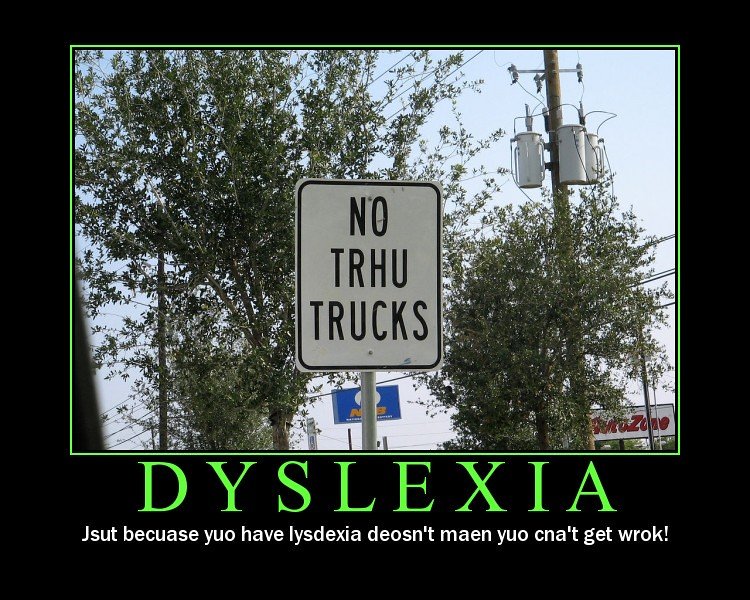While you are able to read what I am writing now properly without any issue, some people find it very difficult. Are you able to read this "A B C D E F"? If you were able to read them in alphabetical order without any constraint or a letter disappearing, then you are not suffering from Dyslexia.
People with dyslexia find it difficult to make written characters become meaningful languages. People suffering from this condition can add letters, remove letters, or even swap words for similar words in a sentence. This condition has been categorized as a learning disability and some researchers say that between 5% to 10% of the world's population suffer from some degree of dyslexia.
There isn't one defining theory for this condition, and the condition isn't as a result of intelligence and with the help of certain screenings like fMRI, it has been shown that people with dyslexia don't really have low intelligence or high level of intelligence. Researchers have also seen that patients that suffer from this condition also have problem with handling information and speech sounds like Phonology, and in the case of matching sounds with character writing.
When we read, the left occipito-temporal region known as the Visual Word Form Area (VWFA) is activated and this part of the brain plays a major part in converting letters to words and connecting them to meaning. An fMRI study shows that people with dyslexia have the visual word form area like the temporal cortex having lower level of activation when they read while other areas of the brain like the frontal areas, which is involved in problem solving and thinking is usually heightened.
Let me guess, you think it is a brain problem now but a study published in 2017 suggest that dyslexia is more of an eye problem and not a brain problem. The researchers from the University of Rennes compared the retinas of 60 volunteers; 30 students who were typical readers and 30 students with reported dyslexia. The researchers looked at the Maxwell Spot centroids in the dominant eyes and found that people who did not suffer from dyslexia has asymmetrical centroids while people with dyslexia had symmetrical centroids. This led the researcher to conclude that the eyes of dyslexia patients sends conflicting mirror images to written words to the brain.
Before you completely agree with the eye study, there have been a lot of criticism from scientist on the study saying that the researchers only focused on one symptom of dyslexia which doesn't cover the entire condition. The researchers also said that not testing the dyslexia patients to be sure if they had dyslexia was another red flag. Currently, there is no treatment for dyslexia and a lot of researches are still ongoing when it comes to dyslexia.
Dyslexia remains a complex and challenging condition, impacting individuals' ability to comprehend written language. While research offers insights into its neurological and ocular aspects, there is no single explanation or cure. The diversity of dyslexic experiences underscores the need for comprehensive understanding and targeted interventions. As scientists continue to explore the intricacies of dyslexia, advancements in diagnosis and treatment hold promise for improving the lives of those affected by this condition and dyslexic should not see their condition as a disadvantage.
Reference
http://fisio2.icb.usp.br:4882/wp-content/uploads/2016/02/Neurobiology-of-dyslexia.pdf
https://royalsocietypublishing.org/doi/pdf/10.1098/rspb.2017.1380
http://fisio2.icb.usp.br:4882/wp-content/uploads/2016/02/Developmental-dyslexia.pdf
https://link.springer.com/article/10.1007/s11881-003-0001-9
https://ila.onlinelibrary.wiley.com/doi/abs/10.1598/RT.60.6.1
https://languagelog.ldc.upenn.edu/nll/?p=35144
https://www.mdpi.com/2076-3425/11/10/1313
https://www.nature.com/articles/s41598-020-75111-8
https://www.sciencedirect.com/topics/veterinary-scienc
https://www.ncbi.nlm.nih.gov/pmc/articles/PMC10312247/
https://www.thetransmitter.org/ethics/controversial-dyslexia




